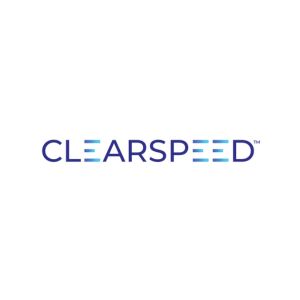
By futureTEKnow | Editorial Team
The energy transition is pushing power grids to their limits. Grid congestion is now a critical challenge as electricity demand accelerates, but traditional upgrades are slow, expensive, and disruptive. Enter AssetCool, a Leeds-based deeptech company that’s reimagining how we enhance the world’s electrical infrastructure.
AssetCool’s breakthrough lies at the intersection of robotics and materials science. Instead of rebuilding aging power lines, the company has developed a proprietary coating platform that can boost the capacity of overhead lines by up to 30%—and at a cost up to 20 times lower than conventional solutions.
This approach not only saves money but also dramatically shortens deployment times, making it possible to respond to grid needs with unprecedented agility.
The secret sauce is in AssetCool’s advanced nanomaterial coatings. These are systematically optimized for overhead conductors, directly enhancing their thermal performance. The coatings can be applied to both new and existing lines, improving efficiency and resilience without the need for major infrastructure overhauls.
What really sets AssetCool apart is its CapacityN robotic platform. This agile system is engineered to apply functional coatings directly to overhead power lines, even while they remain in service125. The robots can address a range of grid constraints, including:
Limited transmission capacity
Corrosion
Noise from corona discharge
CapacityN robots are also equipped to collect physical data, which is then analyzed with AI to provide actionable insights for grid operators. This data-driven approach enables ongoing performance validation and opens the door to additional services, such as predictive maintenance.
AssetCool’s recent £10 million Series A funding round was led by Energy Impact Partners (EIP), with support from Extantia Capital, Taronga Group, and the Northern Powerhouse Investment Fund. The oversubscribed round reflects strong confidence in AssetCool’s ability to deliver rapid, scalable, and cost-effective grid upgrades.
AssetCool’s technology is already being deployed with utilities around the world. By enabling significant capacity increases without the delays and costs of traditional upgrades, AssetCool is positioning itself as an essential partner for grid operators navigating the energy transition.
Key innovations like:
Robotic in-situ coating application
Thermal-management nanomaterials
AI-driven grid analytics
are reshaping the way we think about grid modernization. As the demand for electricity grows, solutions like AssetCool’s will be vital for building a more resilient, efficient, and sustainable energy future.
AssetCool is proving that the future of grid upgrades isn’t about tearing down and rebuilding—it’s about enhancing and optimizing what we already have, with a little help from robotics and cutting-edge chemistry.
Founded in 2018, futureTEKnow is a global database dedicated to capturing the world’s most innovative companies utilizing emerging technologies across five key sectors: Artificial Intelligence (AI), immersive technologies (MR, AR, VR), blockchain, robotics, and the space industry. Initially launched as a social media platform to share technology news, futureTEKnow quickly evolved into a comprehensive resource hub, spotlighting the latest advancements and groundbreaking startups shaping the future of tech.

Bridgit Mendler’s Northwood Space is pioneering mass-produced ground stations, enabling scalable, high-speed connectivity for the new era of satellite networks and megaconstellations.

SpaceX aims to nearly double launches from Vandenberg in 2025, facing support from federal agencies but strong objections from the state and local communities.

Traditional Medicare will pilot AI-assisted prior authorization in 2026 across six states, focusing on high-risk outpatient services. Clinicians retain final say, but incentives and access concerns loom as CMS tests fraud reduction and “gold card” exemptions. Here’s what providers and patients should know.

OpenArt’s new “one-click story” compresses scripting, visuals, and edits into ready-to-post short videos—fueling viral growth and a fresh IP debate. We break down how it works, adoption signals, what’s next (multi-character, mobile), and practical guardrails creators and brands should follow to stay original and compliant.

OpenAI’s o3 swept the Kaggle AI chess tournament, defeating xAI’s Grok 4–0. The victory fueled the intense rivalry between Altman and Musk, reshaping AI benchmarks.

NASA and Google’s AI-powered Crew Medical Officer Digital Assistant enables autonomous diagnoses for astronauts on Mars missions, redefining remote healthcare for space and Earth.

Pinterest’s CEO confirms that fully agentic AI shopping is years away, as the platform invests in AI-powered tools to enhance discovery, inspiration, and personalized shopping experiences for millions.

Shopify’s new AI shopping tools are transforming e-commerce, letting agents and chatbots deliver smooth, personalized shopping and checkout experiences across platforms. Learn how these innovations reshape online retail.

Meta has acquired WaveForms AI, a startup pioneering emotion-detecting voice technology. Learn what this means for Meta’s AI voice ambitions and the future of AI audio.

Tracelight is revolutionizing financial modelling for finance professionals with AI-powered Excel tools that automate complex tasks, reduce errors, and unlock new analysis capabilities. Learn how this next-gen solution changes the future of spreadsheets.

China’s Lanyue lander completed its first major test, showcasing advanced engineering for safe, crewed moon landings before 2030. Explore how this milestone shapes the space race.

Microsoft rolls out GPT-5 across its Copilot suite, integrating smarter AI for enterprise and personal users. Discover new features, free access, and what sets this launch apart.
To provide the best experiences, we use technologies like cookies to store and/or access device information. Consenting to these technologies will allow us to process data such as browsing behavior or unique IDs on this site. Thanks for visiting futureTEKnow.